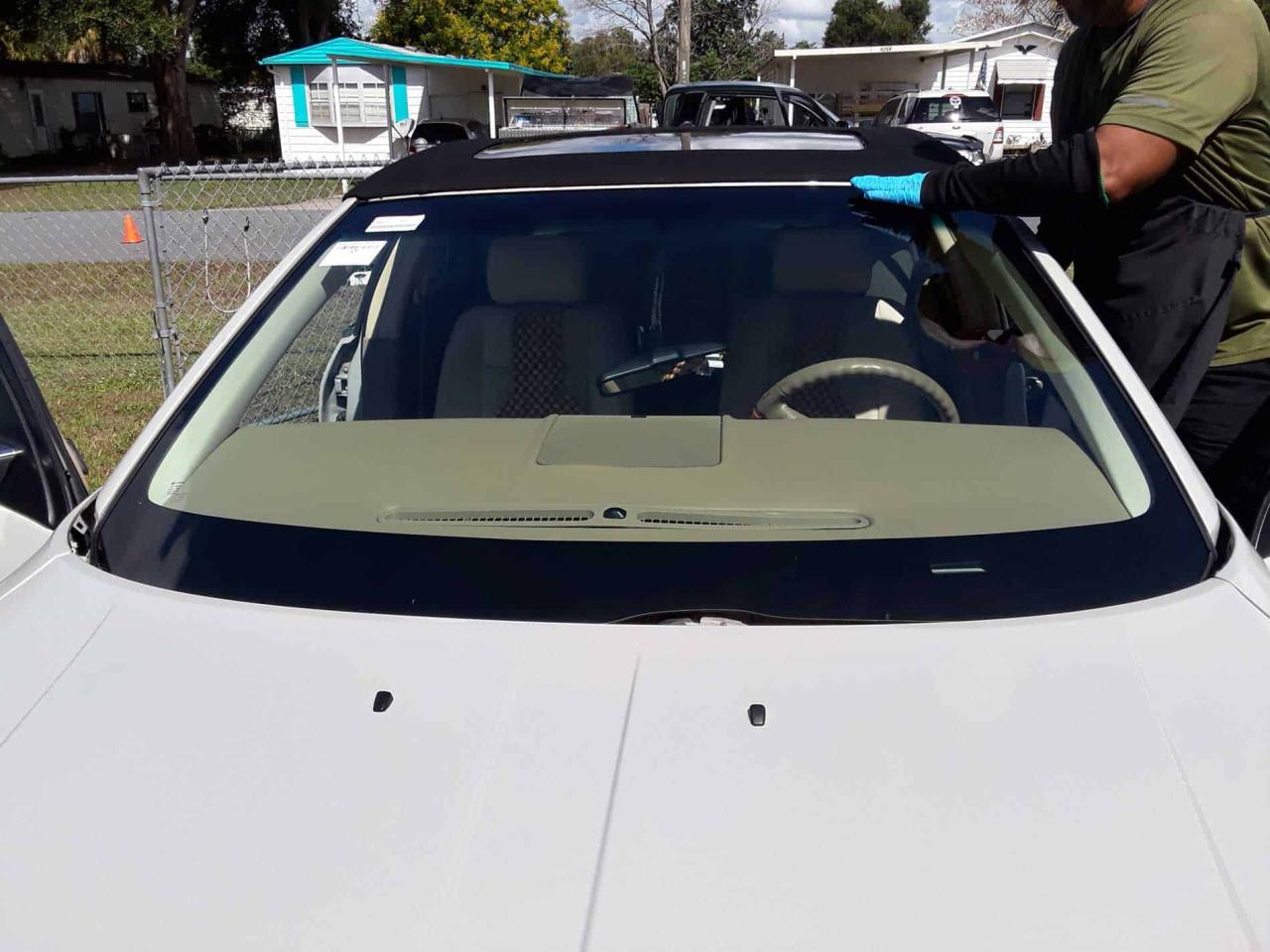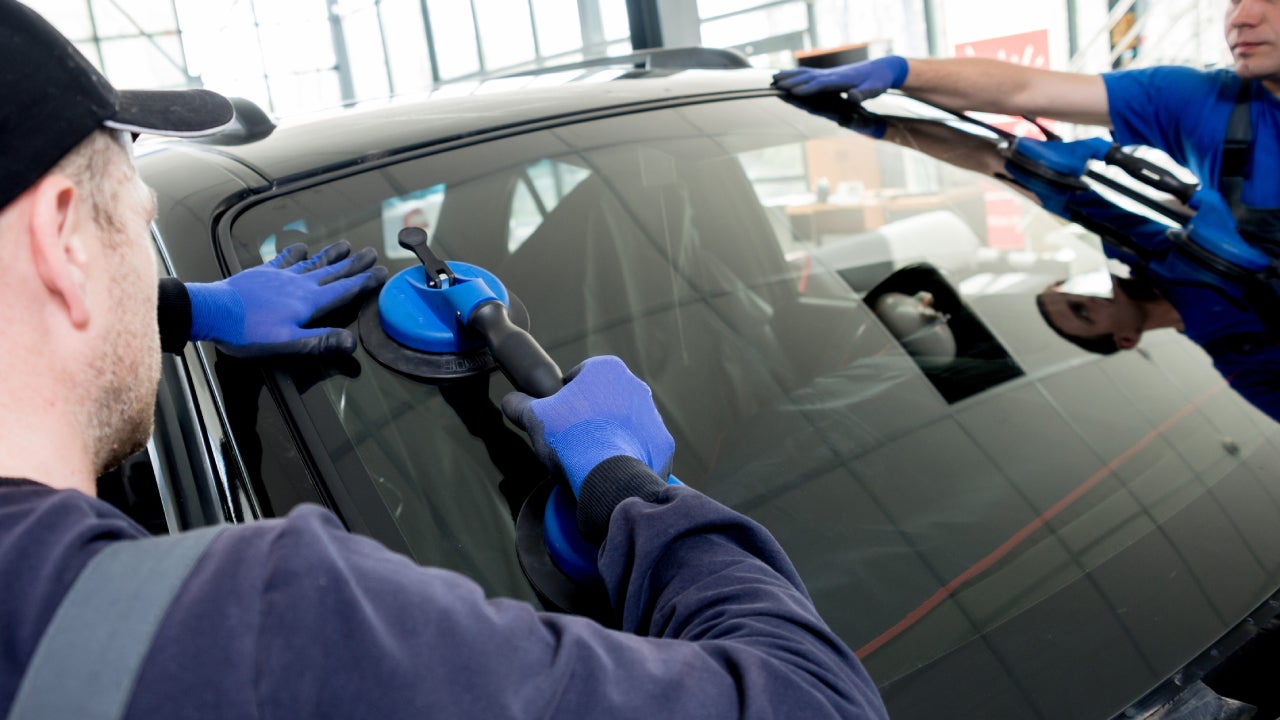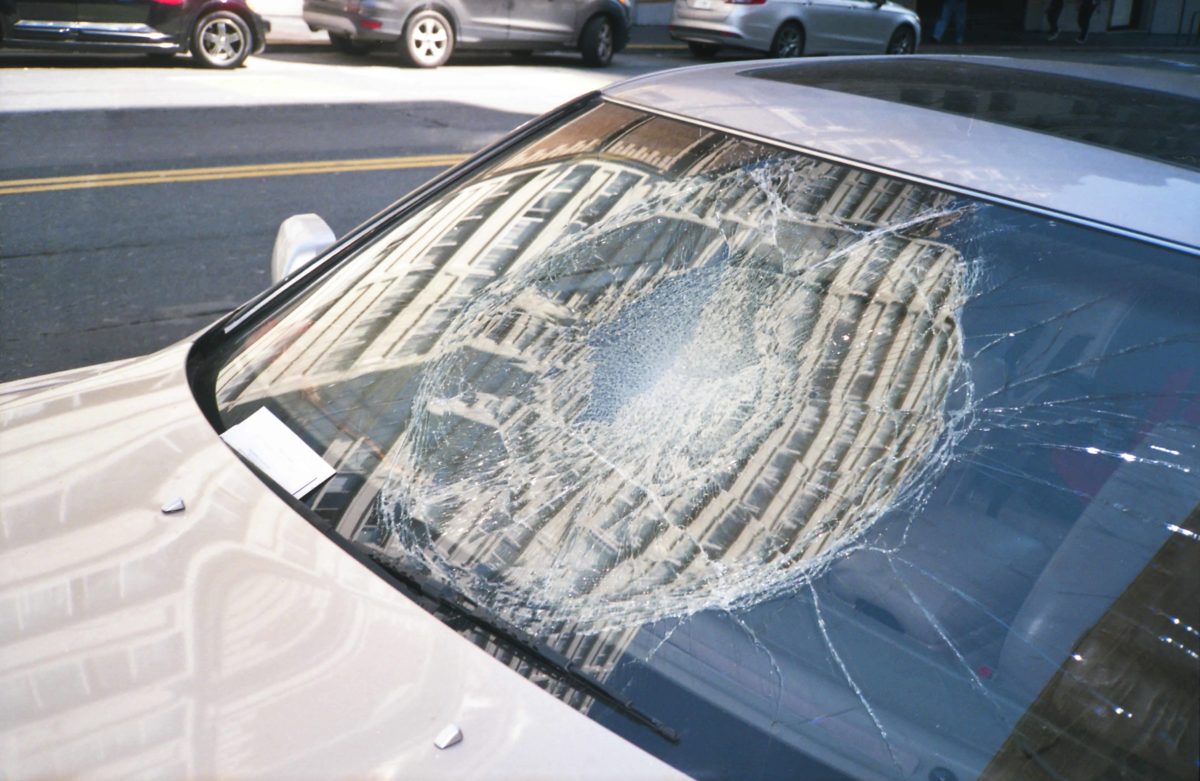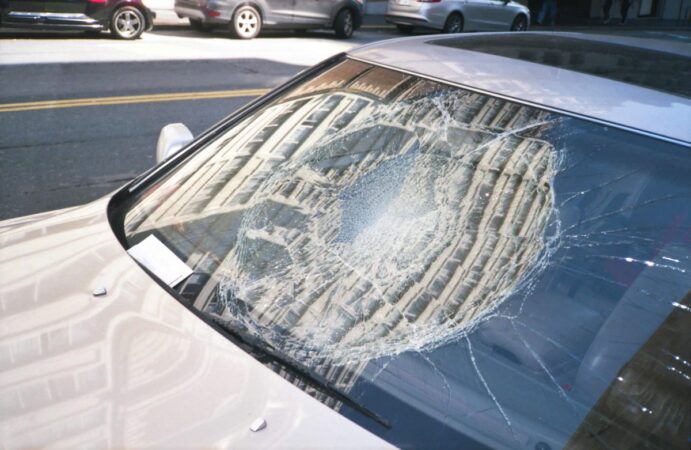
Does Florida car insurance cover windshield replacement? The answer, thankfully, is often yes. However, understanding the intricacies of your policy is crucial. Florida car insurance policies vary widely, and coverage for windshield replacement can depend on the type of policy you have, the cause of the damage, and even your deductible.
This guide will demystify windshield replacement coverage in Florida, exploring the various types of policies, common scenarios where coverage applies, and the crucial factors that influence your claim. We’ll also delve into the difference between repair and replacement, the steps involved in filing a claim, and essential tips for navigating the process smoothly.
Florida Car Insurance and Windshield Replacement

In Florida, windshield replacement coverage is typically included in most car insurance policies. However, the extent of coverage and the specific requirements can vary depending on the type of policy and the insurance provider. This guide explores the different aspects of windshield replacement coverage under Florida car insurance policies.
Coverage for Windshield Replacement in Florida
Florida car insurance policies usually offer coverage for windshield replacement, but the extent of coverage can vary. Most policies include comprehensive coverage, which covers damage to your vehicle caused by events other than collisions, such as theft, vandalism, or natural disasters. Windshield damage is generally covered under comprehensive coverage. However, some policies may have specific deductibles or limitations for windshield replacement, so it’s important to review your policy details carefully.
Types of Car Insurance Policies and Windshield Replacement Coverage
Here’s a breakdown of different types of car insurance policies and their typical coverage for windshield replacement:
- Comprehensive Coverage: This coverage is designed to protect your vehicle from damage caused by events other than collisions, such as theft, vandalism, or natural disasters. Windshield damage is typically covered under comprehensive coverage, but there may be deductibles or limitations.
- Collision Coverage: This coverage protects your vehicle from damage caused by collisions with other vehicles or objects. While it’s not typically used for windshield replacement, it may be applicable in some cases, such as when the windshield is damaged due to a collision with a deer.
- Glass Coverage: Some insurance companies offer separate glass coverage, which specifically covers damage to the windshield and other glass components of your vehicle. This type of coverage often has lower deductibles and may include additional benefits, such as waived deductibles for multiple windshield replacements within a certain period.
Scenarios Where Windshield Replacement is Covered
Here are some common scenarios where windshield replacement is covered by Florida car insurance:
- Rock Damage: If a rock or other debris hits your windshield and causes a crack or chip, it’s likely covered under comprehensive coverage.
- Vandalism: If someone intentionally damages your windshield, such as by throwing a rock or spray-painting it, the damage is typically covered under comprehensive coverage.
- Natural Disasters: Windshield damage caused by natural disasters like hurricanes, hailstorms, or tornadoes is usually covered under comprehensive coverage.
- Collision with a Deer: If your windshield is damaged in a collision with a deer or other animal, it may be covered under collision coverage, depending on the specifics of the incident.
Deductibles and Coverage Limits
Deductibles and coverage limits are important aspects of Florida car insurance policies that influence how much you pay out-of-pocket for windshield replacement. Understanding these elements helps you make informed decisions about your insurance coverage and plan for potential costs.
Deductibles
Your deductible is the amount you pay out-of-pocket before your insurance coverage kicks in for a windshield replacement. Deductibles are a way to manage risk and lower your insurance premiums. Higher deductibles typically mean lower premiums, while lower deductibles result in higher premiums.
For example, if you have a $100 deductible for windshield replacement and your repair costs $300, you would pay $100 and your insurance would cover the remaining $200.
Coverage Limits
Coverage limits represent the maximum amount your insurance company will pay for a windshield replacement. These limits are usually stated in your policy and can vary depending on the type of coverage you have.
Factors Affecting Coverage Limits
Several factors can affect the coverage limit for windshield replacement, including:
- Type of coverage: Comprehensive coverage typically offers higher coverage limits for windshield replacement than liability coverage.
- Vehicle type: Windshield replacement costs can vary based on the size and type of your vehicle, so coverage limits may reflect these differences.
- Policy details: Specific policy details, such as the age of your vehicle, can impact the coverage limit for windshield replacement.
- Insurance company: Different insurance companies may have different coverage limits and policies for windshield replacement.
Typical Coverage Limits
While coverage limits vary widely, here are some examples of typical coverage limits for windshield replacement in Florida:
- $500 – $1,000: Common coverage limits for windshield replacement under comprehensive coverage.
- $250 – $500: Typical coverage limits for windshield replacement under liability coverage, which is often less than comprehensive coverage.
Windshield Repair vs. Replacement
A damaged windshield can be a frustrating experience, but it’s important to know your options for repair or replacement. Florida car insurance policies typically cover windshield damage, but the coverage details and process vary depending on the specific policy. This section will explore the differences between windshield repair and replacement, providing guidance on when each option is appropriate.
Factors Determining Repair or Replacement
The decision to repair or replace a windshield depends on several factors, including:
- Size and Location of the Damage: Small chips or cracks that are not in the driver’s line of sight are often repairable. Larger cracks or damage that extends across the windshield, especially in the driver’s view, usually require replacement.
- Severity of the Damage: A small chip or crack that is not spreading can be repaired, but a large crack or multiple cracks might require replacement. The severity of the damage will determine the effectiveness of a repair.
- Type of Damage: Star-shaped cracks, bullseye cracks, and small chips are often repairable. However, cracks that are spiderweb-like, long, or extend to the edge of the windshield usually require replacement.
- Windshield Age and Condition: Older windshields may be more prone to cracking and might not be repairable. Additionally, windshields with existing damage may be more susceptible to further damage, making replacement a safer option.
- Safety Concerns: If the damage is in the driver’s line of sight, it can impair visibility and compromise safety. In such cases, replacement is typically recommended.
Windshield Repair Process
When a windshield repair is feasible, a qualified technician will use specialized tools and materials to fill the crack or chip with a resin that matches the windshield’s color. The resin is then cured under ultraviolet light, making the damage less noticeable and preventing further cracking. The process is typically quick and cost-effective.
Windshield Replacement Process
If the damage is too extensive for repair, a replacement is necessary. The process involves removing the damaged windshield and installing a new one. A qualified technician will ensure proper installation, using adhesives and sealants to secure the new windshield to the vehicle’s frame.
Filing a Windshield Claim

Filing a windshield claim with your Florida car insurance provider is a straightforward process. You will need to contact your insurance company, report the damage, and provide the necessary information. The insurer will then assess the damage and determine if the claim is covered.
Required Documentation
To ensure a smooth and efficient claim process, it is crucial to have the following documentation ready:
- Your insurance policy information: This includes your policy number, coverage details, and contact information.
- Driver’s license and vehicle registration: These documents will verify your identity and ownership of the vehicle.
- Police report (if applicable): If the windshield damage was caused by an accident, you will need to provide a police report.
- Photos of the damage: Take clear pictures of the windshield damage from multiple angles, capturing the extent of the crack or chip.
- Estimate from a qualified auto glass repair shop: This will help your insurance company assess the cost of repairs or replacement.
Tips for a Smooth Claim Process
- Contact your insurance company promptly: Do not delay in reporting the damage, as this may affect your claim processing time.
- Be accurate and honest: Provide all the necessary information to your insurance company and be truthful about the circumstances surrounding the damage.
- Choose a reputable auto glass repair shop: Ensure the repair shop is certified and has a good reputation for quality workmanship.
- Keep track of all communication: Maintain a record of all interactions with your insurance company, including dates, times, and details of conversations.
- Follow up regularly: Stay in touch with your insurance company to check on the status of your claim and address any concerns.
Choosing a Windshield Repair Shop: Does Florida Car Insurance Cover Windshield Replacement
When your windshield needs repair or replacement, it’s crucial to choose a reputable and qualified shop to ensure a safe and durable fix. Selecting the right shop can make a significant difference in the quality of the repair, the cost, and the overall satisfaction with the service.
Factors to Consider When Choosing a Windshield Repair Shop
Several factors should be considered when choosing a windshield repair shop. These factors can help you make an informed decision and ensure you receive high-quality service.
- Experience and Expertise: Opt for a shop with extensive experience in windshield repair and replacement. Experienced technicians are more likely to have encountered a wide range of scenarios and can handle complex repairs effectively.
- Certifications and Accreditations: Look for shops certified by reputable organizations like the Auto Glass Safety Council (AGSC). These certifications indicate that the shop meets specific standards for quality and safety.
- Customer Reviews and Testimonials: Check online reviews and testimonials from previous customers to gauge the shop’s reputation and customer satisfaction levels. Positive reviews can provide valuable insights into the shop’s professionalism, quality of work, and customer service.
- Warranty and Guarantees: Inquire about the shop’s warranty and guarantees on their work. A comprehensive warranty provides peace of mind and assurance that the repair will be done right.
- Insurance Coverage and Billing: Verify if the shop works with your insurance provider and handles the billing process smoothly. This can simplify the claim process and ensure you receive the appropriate coverage.
- Location and Convenience: Choose a shop that is conveniently located and accessible to you. This can save you time and effort, especially if you need to get your car repaired quickly.
- Price and Transparency: Get clear and upfront pricing for the repair or replacement. Ensure there are no hidden fees or charges.
Importance of Selecting a Reputable and Certified Repair Shop
Selecting a reputable and certified repair shop is essential for several reasons:
- Quality of Work: Certified shops adhere to strict standards and guidelines, ensuring high-quality repairs and replacements.
- Safety: Reputable shops prioritize safety and use certified materials and techniques to ensure the windshield is properly installed and meets safety regulations.
- Warranty and Guarantee: Certified shops often offer comprehensive warranties and guarantees, providing assurance and peace of mind.
- Insurance Coverage: Many insurance companies prefer certified shops, making it easier to file claims and receive coverage.
Types of Windshield Repair Shops, Does florida car insurance cover windshield replacement
There are different types of windshield repair shops, each with its advantages and disadvantages:
| Type of Shop | Advantages | Disadvantages |
|---|---|---|
| Independent Shops | Often offer competitive pricing, personalized service, and flexibility in scheduling. | May not have the same level of certification or experience as larger chains. |
| National Chains | Typically have a wider network of locations, standardized procedures, and consistent quality control. | May have higher prices and less flexibility in scheduling. |
| Dealership Service Centers | Offer convenience for vehicle owners, access to OEM parts, and comprehensive warranty coverage. | Can be more expensive than other options and may have longer wait times. |
Wrap-Up

Navigating the complexities of windshield replacement coverage in Florida can be daunting, but armed with the right information, you can confidently file a claim and get your vehicle back on the road. Remember to review your policy carefully, understand your deductible and coverage limits, and choose a reputable repair shop. By following these guidelines, you can ensure a smooth and successful windshield repair or replacement process.
Questions Often Asked
What if my windshield is damaged in a hailstorm?
Most comprehensive car insurance policies cover windshield damage caused by natural disasters like hailstorms. However, check your policy for specific exclusions and limitations.
Can I choose any windshield repair shop?
Your insurance company may have a preferred network of repair shops. While you’re not obligated to use them, choosing a shop within the network can simplify the claims process.
What if my windshield is cracked but still visible?
A cracked windshield, even if visible, might not require immediate replacement. Your insurance company will assess the damage and determine if repair or replacement is necessary.





